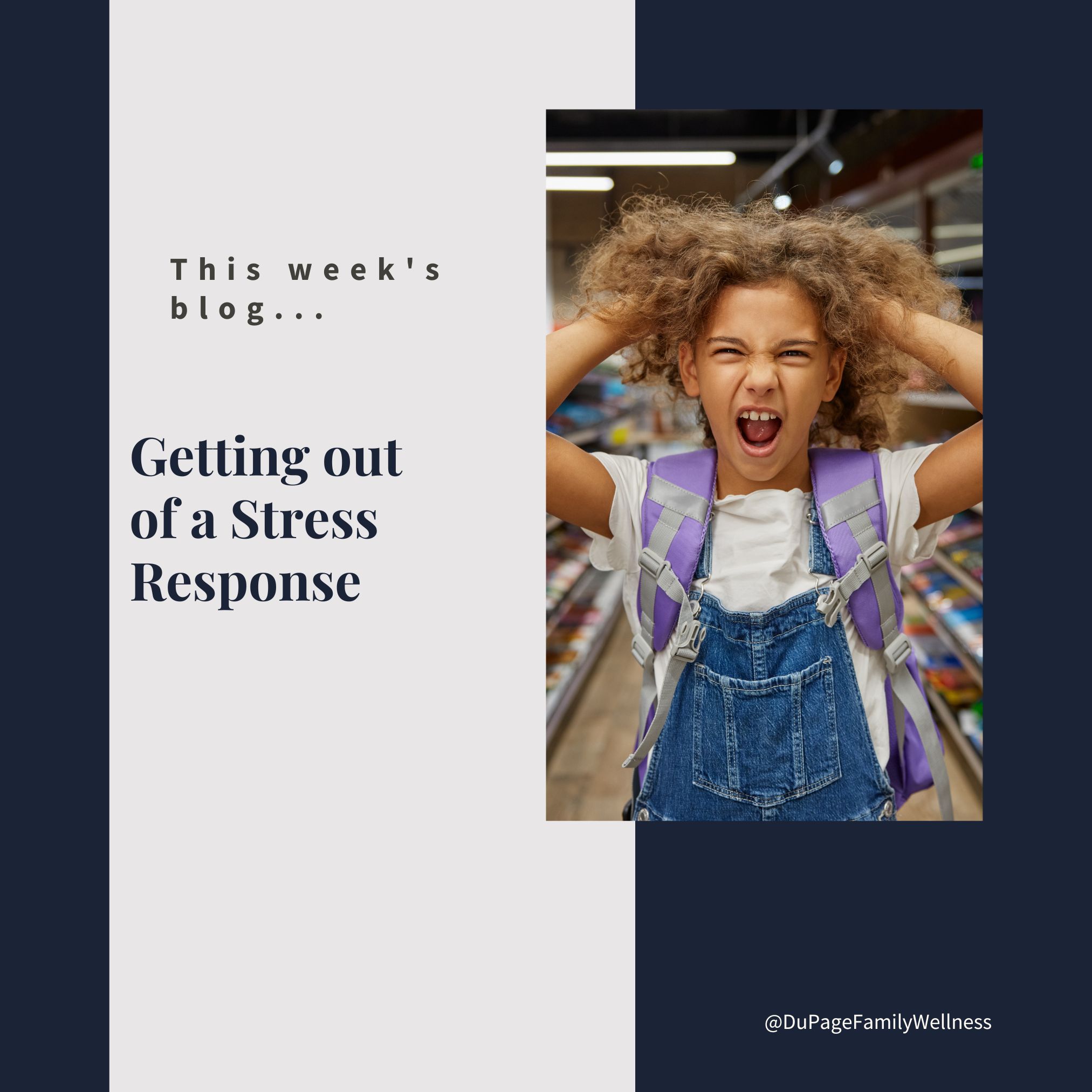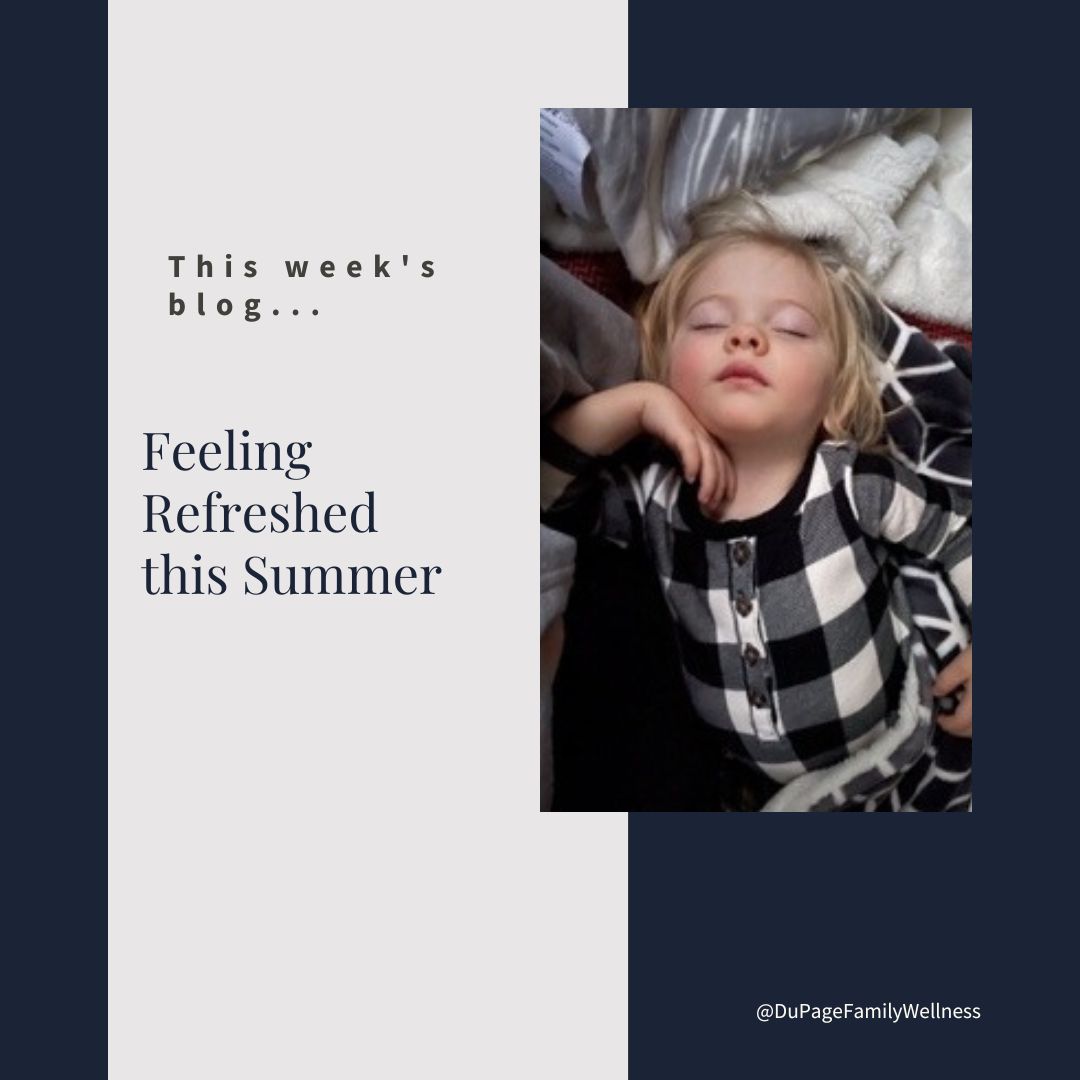 Hormones play a large part in reaching and maintaining a healthy weight. However, many common household items now contain chemicals that can disrupt our hormones. These hormone-disrupting chemicals called obesogens may predispose some people to become obese.
Hormones play a large part in reaching and maintaining a healthy weight. However, many common household items now contain chemicals that can disrupt our hormones. These hormone-disrupting chemicals called obesogens may predispose some people to become obese.
It can be tricky to avoid obesogens because they are pervasive in our society, but there are some ways that you can lessen their impact on your weight and your health. Because, even if you are not concerned about losing weight, do you want chemicals messing with your hormones?
Let’s take a look at obesogens and how to avoid them. I promise not to get too technical on you!
What are Obesogens
Obesogens are chemicals that interfere with the endocrine system and disrupt regular hormone activity. Your metabolism, energy levels, fat storage, and many other crucial functions of the body can be affected.
About a thousand of these chemicals are used in commerce today. The most common ones are bisphenol-A (BPA), phthalates, atrazine, organotins, and perfluorooctanoic acid (PFOA)
Most products have an ingredient list, but with a thousand endocrine-disrupting hormones used in manufacturing today, it is impossible to identify them all.
Where Obesogens Are Found
The "Think Dirty - Shop Clean" app makes it possible to evaluate products. It rates how toxic many home and beauty products are. You just type the product name into the app or scan the barcode to get the results.
The Environmental Working Group website is another great place to learn more about toxins in water, food, and products. Try plugging in a few of your commonly used products (soaps, shampoos, deodorants, makeup, etc.) to see the rating.
Some products to watch out for are…
- Body products - shampoo, soap, perfume, nail polish, lotion
- Cleaning supplies - detergent, dryer sheets, air fresheners
- Food - processed food, pre-packaged food, microwaveable meals, food stored in plastic, seafood
- Drinks - canned drinks, tap water
- Household products - non-stick pans, plastic containers, stain-repellant
What to Do
It can be overwhelming to discover all the products that contain Obesogens. If we try to limit all exposure, it will be next to impossible. Chances are the anxiety created from this attempt will be worse for you than minimal exposure.
Do the best you can to make reasonable changes over time. You may need to get creative if the cost is a factor; maybe going to a thrift store would make some of these changes possible or ask for some of the products you would like for a present.
Where to Begin
If you need a place to start, follow the suggestions below…
- Wash your hands - use a good hand soap to rinse off any residue of endocrine disruptors.
- Get rid of plastic - use glass containers to store food. Drink water from glass or stainless steel. Bring cloth bags when you shop. Focus on wooden or cotton toys.
- Replace nonstick cookware - opt for cast iron, ceramic, glass, or stainless steel.
- Eat real food - choose fresh meats and produce rather than food made in a factory.
- Purify your water - use a water filtering system and store the water in a glass jar.
- Clean your home - use clean products that you have researched (see the app mentioned above). Vacuum and dust often reduce dust particles in the air.
If this information is overwhelming you, take a breath. We aren’t striving for perfection; little changes go a long way!
Dr. Jamie
 It is time to start talking about the impact of sun exposure. You may expect a reminder to wear sunscreen, but some research indicates that spending time in the sun without getting a sunburn promotes health rather than leading to skin cancer.
It is time to start talking about the impact of sun exposure. You may expect a reminder to wear sunscreen, but some research indicates that spending time in the sun without getting a sunburn promotes health rather than leading to skin cancer.
This may challenge the common thought about sun exposure, and it is important to understand the nuance involved. I do not want you reading this and thinking you can start spending all day at the pool without the proper precautions.
Let’s explore how healthy sun exposure might look for you this summer.
Learning from our Ancestors
Our ancestors long ago were outside in the sun hunting, gathering, and living in the community. Their survival depended on being out in the elements. They didn’t have temperature-controlled homes, so being outside was common.
In general, current generations spend less time outside in the sunshine than previous generations. The comfort of an air-conditioned home and other modern technology draws people inside in warm weather preventing exposure to the sun.
Though our ancestors did this out of necessity, modern-day research shows this kind of living has many physical and mental health benefits. It is especially important to be intentional about this in northern areas where the sun is not as direct.
Benefits of Sunshine
Sunshine can make you feel lighter, move more, sleep better, and have more energy. It tends to chase away the winter blues, giving us a fresh perspective on life. But did you know it can also affect our longevity?
One study found that sunshine could “reduce blood pressure, cut the risk of heart attack and stroke - and even prolong life.” It states that since heart disease and strokes linked to high blood pressure cause about 80 times more deaths than those from skin cancer, the benefits may outweigh the risks.
But, we may not even have to worry as much about cancer as traditionally thought. According to Dr. Ruscio, sun exposure leads to the formation of the active form of vitamin D (1, 25-OH) which improves DNA repair and may PROTECT the skin from cancer (as opposed to causing skin cancer as most people think).
Other studies suggest that sun exposure demonstrates a significant REDUCTION in all causes of mortality. With this in mind, we must question the belief that sun exposure is dangerous.
Guidelines for Exposure
Chris Kresser, an expert in functional medicine, explains that the studies on sun exposure were based on light-skinned people of European ancestry who lived in Northern Australia.
Since the research did not account for skin tone and geographical location the guidelines can not be generalized for the entire population. Most people living in areas with a lower ultraviolet (UV) index need different guidelines.
So, what guidelines does Kresser recommend?
- spend half the time it takes for your skin to turn pink outside without sunscreen (do this at least 2-3 days a week).
- use shade, light clothing, and a wide-brimmed hat if you will be outside for an extended period of time.
- remember the time of day, latitude, and season impact the sun’s intensity (tropics vs. the Midwest).
- establish a baseline tan in the spring or early summer.
- use wisdom on vacation (consider the sun's intensity and if you have a baseline tan).
- babies under 6 months don’t have much melanin (opt for limited sun exposure in the morning and late afternoon rather than at noon).
Read more ...

Do you enjoy having an alcoholic drink with friends or relaxing with a glass of wine in the evening? While there is nothing wrong with an occasional drink, it is important to understand how it impacts the body. This is especially important regarding women's hormones.
Women have a complicated balance of hormones that are easily impacted by alcohol. If there are already concerns with your hormones, you may want to pay close attention to the information presented.
This is not a moral issue. I just want to give you knowledge, so you can make an informed decision that is right for you. Know that this is a safe space. You can talk to me about this and anything else related to your health.
Let’s look at how different hormones are impacted by alcohol.
What Are Hormones?
Hormones are chemical messengers within the body that are secreted by glands in the endocrine system. They tell the tissue and organs in the body what to do. The proper balance of hormones is crucial for your physical and mental health.
When something happens to make one hormone increase the other hormones are affected. It's like a delicate dance with some hormones following another's lead.
Alcohol’s Impact on Hormones
Let’s take a look at some of the ways moderate alcohol impacts this system.
- Estrogen - alcohol raises the estrogen levels in the body because it contains estrogenic compounds, increases enzymes that convert testosterone to estrogen, and makes the liver less effective in detoxing estrogen.
- Cortisol - moderate alcohol consumption impacts sleep quality which increases cortisol which is a stress hormone.
- Thyroid hormones - the increase in estrogen levels prevents the thyroid from releasing normal amounts of hormones, and the rise in cortisol makes the body less effective in converting the thyroid hormone T4 into T3.
- Testosterone - alcohol decreases testosterone levels in men by lowering the coenzyme NAD+ which is used in the production of testosterone.
- Progesterone - estrogen and progesterone have an inverse relationship, so as estrogen increases, progesterone decreases.
- Insulin - alcohol may increase insulin resistance and hinder the body’s ability to process sugar.
Implications for Women
Knowledge about our body can help us make wise decisions. People's relationship with alcohol can be quite complex. How much and how often to drink is a personal decision based on your body and situation.
For example, a woman who is already dealing with estrogen dominance may choose to be more cautious than someone who does not struggle with the issue. Signs of estrogen dominance include difficult periods, PMS, PCOS, fibroids, endometriosis, breast pain, headaches, depression, hair loss, and weight gain.
Other women who may want to think carefully about their alcohol consumption are those who are dealing with issues of fertility. Since proper hormone balance is crucial for conception, women may wish to limit their alcohol consumption, especially during the week leading up to ovulation.
As always, please feel free to bring your questions to me. I want to empower you with the knowledge you need to make decisions you feel good about.
Dr. Jamie

When you have healthy boundaries, you make choices that are right for you rather than basing them on pressure or guilt from others. This may include turning people down for things that do not work for your schedule or do not align with your values. It may even include things you just do not want to do.
Boundaries also clarify how you allow yourself to be treated. You can not control anyone else's behavior, so boundaries focus on how you respond. It may sound like, “Please speak respectfully; I will walk away from you if you yell at me.”
Author Prentis Hemphill says, “Boundaries are the distance at which I can love you and me simultaneously.” They are where you honor yourself by considering your needs. In return, this protects your peace and guards your relationships from resentment.
Let’s look at ways to embrace boundaries in our lives.
Making Commitments
Saying ‘yes’ to something means saying ‘no’ to something else. We have limited resources (financially, physically, and even emotionally). So, think about what you want to give before committing.
Healthy boundaries that lower stress may look like…
- limiting the time you spend with certain people or activities
- negotiating a more balanced approach to responsibilities at home
- saying ‘no’ to a request for help
- refusing to loan items or money
- turning down a promotion
- resigning from clubs or positions
- not signing up for extra requests
Communicating Expectations
It can seem like a boundary to tell someone how you want to be treated, but that is just a request. Boundaries may include a request but also state what your response will be if the request is not honored.
Healthy boundaries in relationships may include telling someone that you will…
- not continue a conversation if they swear
- leave the house if they are drinking excessively
- not lie for them if they miss work or school
- take some time away from the relationship if they try to manipulate you
- not spend time with them if they lie about you
Practical Notes
Many people think focusing on our needs and desires is selfish. Our culture and homes often teach us to put other people's needs ahead of our own. While there are times we may choose to do that, it should not be your automatic response. You do not need to justify yourself when saying ‘no.’ There may be a specific reason or you might just not want to do something. Either way is legitimate. Staying home to relax is as good a reason to decline a request as a work obligation.
Boundaries are only as effective as your actions. Letting someone guilt you into changing your mind will only encourage them to pressure you in the future. When people treat you poorly, following through with what you said you would do may encourage them to change their treatment of you in the future. You cannot change the other person, but you can change your responses to them in ways that will support your well-being.
Read more ...
 During times of stress, our bodies are designed to go into a state of fight, flight, or freeze. This stress response is beneficial during times of crisis, giving us the best chance of survival. After the threat has passed, we are supposed to transition back to a more relaxed state.
During times of stress, our bodies are designed to go into a state of fight, flight, or freeze. This stress response is beneficial during times of crisis, giving us the best chance of survival. After the threat has passed, we are supposed to transition back to a more relaxed state.
It is not healthy to stay in an acute stress response for extended periods. Inflammation, poor digestion, high blood pressure, and increased glucose levels may result. Systems in your body are burdened, and your immune system's response will be negatively impacted.
Many of us deal with chronic stress and need strategies to increase our capacity to handle it. Let’s look at some stress management techniques that you can use to regulate your nervous system and stay balanced.
Enjoyable Activities
Life-giving activities ease stress. Find things you enjoy that are realistic for your resources (time, money, etc.). Aim for things you can do every day.
You might want to…
- go for a walk
- snuggle up with a book
- take deep breaths of fresh air
- listen to bird noises or other natural sounds
- lay on the floor stretching
- play with a pet
- savor a small piece of dark chocolate
- sit in silence
- listen to music
- spend time with those you enjoy
- get a drink of water or make a cup of tea
For more information check out Self-Care for Everyone.
Social Connection
Positive social connections reduce stress and activate the parasympathetic nervous system. This is often referred to as co-regulation of the nervous system and is where healing occurs.
So, connect with others; you can…
- get together with a friend
- call your loved ones
- use video calls to be face-to-face with those who live at a distance
- text someone you’ve been thinking about
- smile at those you walk by throughout the day
- get to know your co-workers
- join a club (sports team, book club, religious organization, etc.)
For more information check out Social Connection & Its Impact on Physical Health.
Practice Gratitude
Feelings of gratitude activate the hypothalamus and flood the system with dopamine. It decreases the stress hormone cortisol and lowers your blood pressure.
We can cultivate gratitude by noticing what brings us contentment or joy. You might feel grateful for…
- friends or family
- jobs that provide for your needs
- fresh air and time in nature
- items that bring you comfort
- opportunities for growth
- basic needs being met
- safe areas to live
For more ideas on gratitude check out Creating a Gratitude Practice.
Grounding
Bring your awareness back to the present by drawing your attention to your body and surroundings. This helps with stress because most concerns are about the past or future.
Read more ...
 Enjoying your summer starts with a good night’s rest. Feeling refreshed helps you savor the moments of pleasure in each day. It gives you the energy to have adventures and have fun with the people you love.
Enjoying your summer starts with a good night’s rest. Feeling refreshed helps you savor the moments of pleasure in each day. It gives you the energy to have adventures and have fun with the people you love.
When you are short on sleep, it is difficult to enjoy the special moments. You may feel irritable with the people around you for "no reason." This can leave you wondering what is wrong with you. But, maybe it doesn't have anything to do with you; maybe it is your sleep habits.
Let's look at some tips to get you quality sleep that will leave you feeling refreshed.
Tips for a Good Night
Making the most of the time you sleep will help you feel more rested. Having good sleep hygiene will make a big difference. Here are some ideas to get you started…
- Morning Light - get bright light in the morning. It is the most important habit for getting a good night’s sleep. The morning light helps reset your circadian rhythm setting you up for quality sleep.
- Bedroom Environment - sleep in a cool, dark room with black-out curtains. Cover electronics that emit light. Keep it quiet or consider a sound machine. Only use your bedroom for sleep and sex.
- Light Exposure - minimize screen time for three hours before bed, use blue light glasses, or consider a program like F.lux. Dim the lights to prepare your body for sleep as bedtime gets closer.
- Daytime Movement - take the stairs, use a standing desk, take time to stretch, or exercise to keep from being sedentary during the day.
- Nutrition - You may sleep better with a lighter dinner or a bedtime snack. Generally, you will benefit from not being overly full or hungry. Be sure your diet isn’t too low carb or low fat.
- Caffeine & alcohol - these interfere with your circadian rhythm. Limiting them, especially later in the day, will help you sleep better at night.
- Stress - deep breathing, meditation, yoga, or even getting together with friends may help you deal with stress.
- Comfortable Bed - invest in a quality bed. Lack of sleep can harm your body, so don’t feel bad spending more to get something nice if you can.
- Waking During the Night - Dr. Kristen Allott recommends keeping a “lizard brain treat” by your bed if you wake up at night. Look at her website for more information.
Sleep hygiene is important, but no amount of sleep hygiene will help if you don’t allow enough time for sleep! Author and professor Mathew Walker says, “You have more of a chance of being struck by lightning than you do of being in that tiny, tiny minority of people that can thrive with fewer than 7 ½ to eight hours of sleep.”
Check out "Are You Getting Enough Sleep" to see if you are giving yourself enough rest each night.
Enjoy your summer activities by getting enough quality sleep. When you feel refreshed, everything is better.
Dr. Jamie
 Hormones play a large part in reaching and maintaining a healthy weight. However, many common household items now contain chemicals that can disrupt our hormones. These hormone-disrupting chemicals called obesogens may predispose some people to become obese.
Hormones play a large part in reaching and maintaining a healthy weight. However, many common household items now contain chemicals that can disrupt our hormones. These hormone-disrupting chemicals called obesogens may predispose some people to become obese. 

 It is time to start talking about the impact of sun exposure. You may expect a reminder to wear sunscreen, but some research indicates that spending time in the sun without getting a sunburn promotes health rather than leading to skin cancer.
It is time to start talking about the impact of sun exposure. You may expect a reminder to wear sunscreen, but some research indicates that spending time in the sun without getting a sunburn promotes health rather than leading to skin cancer.

 During times of stress, our bodies are designed to go into a state of fight, flight, or freeze. This stress response is beneficial during times of crisis, giving us the best chance of survival. After the threat has passed, we are supposed to transition back to a more relaxed state.
During times of stress, our bodies are designed to go into a state of fight, flight, or freeze. This stress response is beneficial during times of crisis, giving us the best chance of survival. After the threat has passed, we are supposed to transition back to a more relaxed state.  Enjoying your summer starts with a good night’s rest. Feeling refreshed helps you savor the moments of pleasure in each day. It gives you the energy to have adventures and have fun with the people you love.
Enjoying your summer starts with a good night’s rest. Feeling refreshed helps you savor the moments of pleasure in each day. It gives you the energy to have adventures and have fun with the people you love.